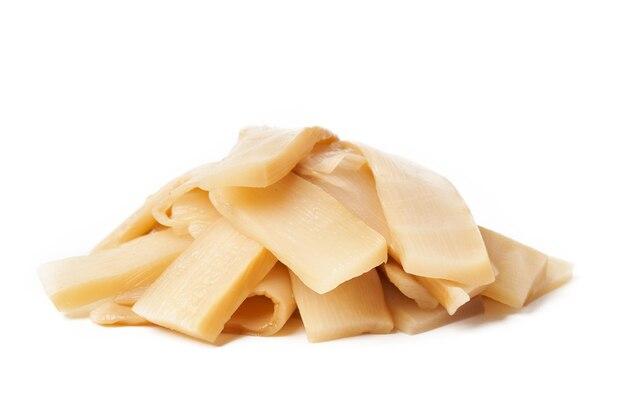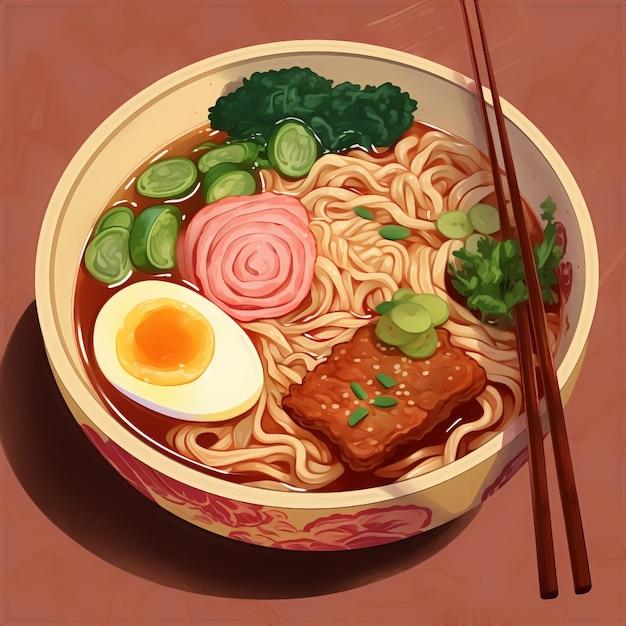If you’ve ever wondered about the different ways Chinese people refer to their grandparents and family members, you’re not alone. Chinese culture has a rich and diverse vocabulary for kinship terms, and it can be fascinating to explore the nuances of these terms. In this blog post, we’ll be focusing on the meaning of “Ah Ma” in Chinese, specifically in the context of grandparents.
“Ah Ma,” pronounced as “ah-mah,” is a term commonly used in both Mandarin and Cantonese to refer to one’s grandmother. It is an affectionate term that conveys warmth and respect for the elder female figure in the family. While “Ah Ma” is predominantly used in Cantonese, it has also become widely recognized and accepted in Mandarin-speaking regions. In this post, we’ll delve deeper into the cultural significance and usage of “Ah Ma” in Chinese-speaking communities.
So, if you’re curious to learn more about the meaning and cultural implications of “Ah Ma” in Chinese, read on for an exploration of this endearing term and its connections to family and tradition.

What does “Ah Ma” mean in Chinese?
In Chinese culture, family holds a special place, and so do the various terms used to address family members. One such term that you might have come across is “Ah Ma.” If you’ve ever wondered what it means, you’ve come to the right place!
Ah Ma – A Term of Endearment for Grandma
In Chinese, “Ah Ma” is the affectionate term used to refer to one’s grandmother. It is a casual term, often used by grandchildren to address their grandmother in a friendly and warm manner. The term “Ah Ma” encapsulates not only respect but also a sense of closeness and familiarity towards this significant family member.
The Endearing Origins of “Ah Ma”
The origin of the term “Ah Ma” can be traced back to the Hokkien dialect, one of the many regional languages spoken in China. In Hokkien, a dialect commonly spoken in Southern Fujian, Taiwan, and various Southeast Asian countries, “Ah Ma” (阿嬷) means “grandmother.” Over time, this affectionate term has spread beyond the Hokkien-speaking communities and become a widely recognized way to address grandmothers in Chinese culture.
Ah Ma – The Unsung Hero of the Family
Ah Ma, or grandmother, is often known for her unconditional love, wisdom, and delicious home-cooked meals. She is the matriarch of the family, the one who keeps everyone together through her nurturing and caring nature. Ah Ma’s tales of the past and life lessons are invaluable treasures passed down through generations, imparting wisdom and shaping the family’s values.
Celebrating Ah Ma – A Beacon of Love
In Chinese culture, respect for the elderly is deeply ingrained. It is common for grandchildren to express their love and gratitude to their grandmothers on special occasions like birthdays, Mother’s Day, or during the Mid-Autumn Festival. These celebrations are an opportunity for the whole family to come together, honor Ah Ma, and show their appreciation for her love and dedication.
Cherishing the Ah Mas Around the World
The term “Ah Ma” is not only used in China, but it has also traveled with the Chinese diaspora, finding its place in homes around the world. Chinese communities, whether in San Francisco, London, or Sydney, continue to cherish and honor their Ah Mas, upholding the rich cultural traditions and family values that are deeply intertwined with this endearing term.
Now that you know the meaning of “Ah Ma” in Chinese, you can appreciate the significance behind this term and the love it represents. So, the next time you hear someone calling out “Ah Ma,” you’ll understand the deep bond and affection shared between a grandchild and their grandmother.

FAQ: What does “Ah Ma” mean in Chinese?
Are you curious about the meaning of “Ah Ma” in Chinese? As language and culture are closely intertwined, it’s fascinating to explore the various ways people refer to their loved ones in different regions. In this FAQ-style blog post, we will decipher the meaning of “Ah Ma” and unveil the rich cultural nuances behind this term.
What does “Por Por” mean in Chinese
“Poh Poh” or “Por Por” is the Cantonese term for grandmother. It is an endearing way to refer to one’s maternal grandmother. So, next time you hear someone talking about their beloved “Por Por,” you’ll know they are cherishing their grandmotherly figure.
What does “Di Di” mean in Chinese
In Chinese, “Di Di” refers to a younger brother. It’s an affectionate term often used by older siblings or close friends. Picture a playful bond, where the “Di Di” looks up to their older sibling for guidance and support.
What does “Wai Po” mean in Chinese
“Wai Po” means maternal grandmother in Mandarin Chinese. This term showcases the reverence and respect for the maternal side of the family, emphasizing the special place grandparents hold in Chinese culture.
What is a “Waigong” in Chinese
In Chinese, a “Waigong” refers to a maternal grandfather. This term represents the paternal aspect of the family and highlights the significant role that grandfathers play in the lives of their grandchildren.
What is “Ako” in Chinese
“Ako” is a Filipino term that means older sister. Though it is not Chinese in origin, it is worth mentioning here as it represents the cultural exchange between languages. So, next time you come across the term “Ako,” you’ll know it signifies a cherished older sister.
What do Chinese call their grandmother
Chinese grandchildren commonly refer to their maternal grandmother as “Ah Ma” or “Por Por,” depending on the dialect. The warmth and love associated with these terms showcase the deep bond shared between grandchildren and their grandmothers.
What does “ai ya” mean in Chinese
“Ah ya” is an exclamation often used to express various emotions, such as surprise, frustration, or astonishment. It’s one of those versatile terms that transcends language barriers and finds its way into daily conversations.
What does “Yeye” mean in Chinese
In Chinese, “Yeye” refers to a paternal grandfather. This term represents the paternal side of the family and underscores the importance of grandfathers within Chinese culture. It’s a term that conveys respect and affection.
What does “Goh Goh” mean in Cantonese
“Go Goh” is a term used in Cantonese to refer to an older brother. It’s an endearing way for siblings or close friends to address each other. Think of a bond full of teasing, support, and camaraderie.
How do you say brother in Chinese
The word for brother in Chinese is “Xiong Di.” This term encapsulates the fraternal connection and represents the strong bond brothers share. So, if you want to impress someone with your knowledge of Chinese, refer to your brother as “Xiong Di.”
What is “Kuya” in Chinese
“Kuya” is a Filipino term that translates to “older brother” in English. While not originally Chinese, it’s interesting to note the cross-cultural exchange of terms. It’s a testament to the diverse linguistic tapestry that weaves people together.
How do you respond to “Ni Hao”
When someone greets you with “Ni Hao,” you can respond with “Ni Hao Ma,” which means “How are you?” in Chinese. This simple exchange of pleasantries showcases politeness and friendliness in Chinese culture.
What is grandma in Cantonese
In Cantonese, grandmother is referred to as “Por Por.” This term embraces the grandmotherly love and care that enriches the lives of grandchildren. So, if you hear someone mentioning their “Por Por,” you’ll know they are talking about their dear grandma.
How do you say Grandpa in Chinese
The term for grandfather in Chinese is “Ye Ye.” Expressing the reverence and affection for paternal grandfathers, this term signifies the vital role grandfathers play in the Chinese family structure.
What is “Po Po” in Chinese
“Po Po” is the Mandarin Chinese term for grandmother. Whether you are referring to your maternal or paternal grandmother, using this endearing term conveys the close bond and respect between generations.
What are nannies called in China
In China, nannies are commonly referred to as “Ayis.” These dedicated caregivers play a crucial role in helping parents take care of their children. Next time you encounter an “Ayi,” appreciate the loving care they provide to little ones.
What is “Angkong” in Chinese
“Angkong” is a Hokkien term that translates to “maternal grandfather” in English. Though not universally used in Chinese, this term showcases the linguistic and cultural diversity within the Chinese community.
What does “nai nai” mean in Chinese
“Nai Nai” is the Mandarin Chinese term for maternal grandmother. It is an endearing way to refer to this beloved family figure, underscoring the deep love and respect grandchildren hold for their “Nai Nai.”
What does “Ah Ma” mean in Cantonese
In Cantonese, “Ah Ma” refers to a grandmother. It’s an affectionate term that reflects the cherished relationship between grandchildren and their grandmothers. If you hear someone mentioning their “Ah Ma,” you know they’re talking about their grandma!
What is “ah mah” in Chinese
“Ah Mah” is another term used to refer to a grandmother in Mandarin Chinese. This endearing term showcases the love and warmth between grandchildren and their grandmothers. So, the next time you hear someone say “Ah Mah,” you’ll understand its significance.
What does “Fei Chai” mean
“Fei Chai” is a Cantonese term that translates to “fat boy” or “fatty.” While it may seem mean-spirited at first, in Chinese culture, it is often used with humor and affection among close friends or family members. Remember, context matters when decoding cultural terms!
How do you say Grandma in Taiwan
In Taiwan, the term for grandma is “Waipo.” This endearing term reflects the special bond between grandchildren and their grandmothers, showcasing the love and respect prevalent in Taiwanese families.
What does “Gege” mean
“Gege” is a Mandarin Chinese term that translates to “older brother.” It is a term of endearment often used by younger siblings or close friends. So, if you have an “Gege” in your life, cherish the bond you share with your older brother.
With this comprehensive FAQ-style subsection, you have now embarked on a journey through the linguistic and cultural landscape of Chinese family terms. Understanding the meanings behind these terms not only enriches our language skills but also deepens our appreciation for the diversity of customs and traditions. So, the next time you encounter “Ah Ma” or “Yeye,” remember the love, respect, and warm familial connections they represent.